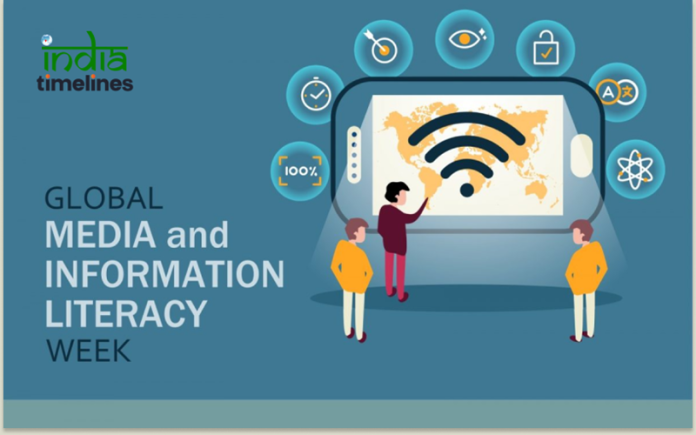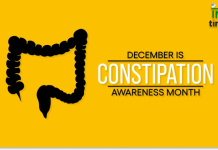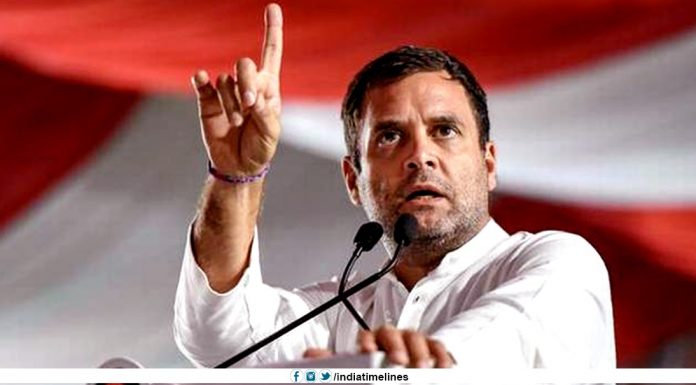
In the digital age, where information flows rapidly across multiple platforms and formats, the ability to access, understand, and critically assess media and information has become an essential life skill. Media and Information Literacy (MIL) is the cornerstone of this ability, and its importance is recognized globally. The United Nations Educational, Scientific and Cultural Organization (UNESCO) has played a pivotal role in promoting media and information literacy worldwide. Every year, UNESCO hosts Global Media and Information Literacy Week, a significant event dedicated to raising awareness about MIL and its role in fostering inclusive and informed societies.
As we approach Global Media and Information Literacy Week 2024, it is imperative to understand the significance of this initiative, its core objectives, and how MIL can equip individuals with the skills to navigate the complex media and information landscape. This article explores the key themes of Global MIL Week 2024, its historical context, and the importance of MIL in today’s interconnected world.
Understanding Media and Information Literacy (MIL)
Media and Information Literacy (MIL) refers to the competencies and skills required to engage with various forms of media and information. MIL encompasses the ability to access, evaluate, create, and communicate information in all formats—digital, print, audio, visual, and multimedia. It also emphasizes the importance of critical thinking and ethical considerations in media consumption and production.
The key aspects of MIL include:
- Access: The ability to find and retrieve information efficiently.
- Evaluation: The capacity to critically assess the credibility, relevance, and accuracy of the information.
- Creation: The ability to produce content that is coherent, ethical, and respectful of intellectual property rights.
- Communication: The skills needed to share information effectively through various channels.
In today’s world, where misinformation, disinformation, and fake news are prevalent, MIL serves as a defense mechanism against manipulation and promotes informed decision-making.
The Origins of Global Media and Information Literacy Week
Global Media and Information Literacy Week was first launched by UNESCO in 2012 as part of its commitment to fostering media literacy and access to information worldwide. The initiative stemmed from the recognition that access to reliable information and the ability to analyze it critically are essential for democratic participation, human rights, and sustainable development.
The annual event serves as a platform to promote MIL awareness and action at the global, regional, and national levels. Each year, the week-long celebration brings together educators, policymakers, media professionals, and civil society organizations to discuss strategies for promoting MIL across different communities.
The goals of Global MIL Week include:
- Raising awareness about the importance of media and information literacy.
- Promoting MIL as a tool for achieving sustainable development goals (SDGs).
- Encouraging partnerships between governments, educational institutions, media organizations, and civil society to promote MIL education.
- Fostering intercultural dialogue through MIL initiatives.
- Empowering individuals to become active and informed citizens in the digital world.
The Theme of Global Media and Information Literacy Week 2024
Every year, Global MIL Week centers around a specific theme that reflects current challenges and opportunities in the field of media and information literacy. For 2024, the theme is expected to focus on “Empowering Citizens through Critical Thinking and Digital Literacy in a Post-Pandemic World.” This theme highlights the need for individuals to navigate the complexities of digital information, especially in the wake of the COVID-19 pandemic, which accelerated the shift to online platforms for communication, education, and information dissemination.
The pandemic underscored the critical role of MIL in combating misinformation related to health, politics, and social issues. As we transition into a post-pandemic world, equipping individuals with the skills to critically assess information is more crucial than ever. The 2024 theme emphasizes the importance of fostering digital literacy, promoting fact-checking, and encouraging responsible media consumption.
Key Objectives of Global MIL Week 2024
Global Media and Information Literacy Week 2024 aims to achieve several key objectives that align with the theme of empowering citizens in the digital age. These objectives include:
1. Promoting Critical Thinking and Fact-Checking
In the era of “fake news,” it is essential to cultivate critical thinking skills. Global MIL Week 2024 will focus on promoting fact-checking initiatives and educating individuals on how to verify the accuracy of information. Through workshops, online campaigns, and educational programs, participants will learn how to identify credible sources, detect misinformation, and counteract the spread of false narratives.
2. Fostering Digital Literacy in Underserved Communities
While the digital revolution has transformed access to information, it has also widened the digital divide. Global MIL Week 2024 will emphasize the need to bridge this gap by providing digital literacy education to underserved and marginalized communities. By empowering individuals with the skills to access and use digital tools effectively, the initiative aims to promote inclusivity and equal access to information.
3. Encouraging Responsible Media Consumption
Media consumption in the digital age can be overwhelming, with individuals exposed to an endless stream of information from various platforms. Global MIL Week 2024 will encourage responsible media consumption by promoting media literacy education that helps individuals discern between reliable and unreliable sources. Participants will learn how to engage with media content thoughtfully and avoid the pitfalls of sensationalism and misinformation.
4. Enhancing MIL in Educational Curricula
Integrating MIL into formal education systems is a priority for UNESCO and Global MIL Week 2024. The initiative will advocate for the inclusion of media and information literacy in school curricula at all levels. By equipping students with MIL skills from an early age, the initiative aims to create a generation of critical thinkers who can navigate the digital landscape with confidence and discernment.
5. Promoting Intercultural Dialogue and Understanding
MIL is not only about accessing and evaluating information but also about understanding diverse perspectives. Global MIL Week 2024 will emphasize the role of media and information literacy in promoting intercultural dialogue and understanding. By fostering open-mindedness and empathy, MIL can help combat polarization and promote peace in an increasingly interconnected world.
The Role of MIL in Combating Misinformation
One of the most pressing challenges of the digital age is the prevalence of misinformation and disinformation. The rapid spread of false information through social media and other digital platforms has serious consequences for public health, democracy, and social cohesion. Global Media and Information Literacy Week 2024 will focus on how MIL can serve as a powerful tool in the fight against misinformation.
MIL empowers individuals to:
- Recognize misinformation and disinformation.
- Understand the motivations behind the spread of false information.
- Develop strategies to counteract the effects of misinformation, such as fact-checking and verification.
- Promote media ethics and responsible journalism.
By equipping individuals with these skills, MIL can help create a more informed and resilient society, capable of withstanding the challenges posed by misinformation.
The Role of Media and Information Literacy in Achieving Sustainable Development Goals (SDGs)
Media and Information Literacy is not only crucial for individual empowerment but also for achieving broader societal goals. The United Nations’ Sustainable Development Goals (SDGs), which aim to address global challenges such as poverty, inequality, and climate change, can benefit from the widespread adoption of MIL.
MIL contributes to several SDGs, including:
- SDG 4: Quality Education: MIL promotes inclusive and equitable quality education by equipping learners with the skills to access and critically evaluate information.
- SDG 5: Gender Equality: MIL can help bridge the gender digital divide by empowering women and girls with the skills to engage with media and information confidently.
- SDG 10: Reduced Inequality: By promoting digital literacy in underserved communities, MIL helps reduce inequalities in access to information and opportunities.
- SDG 16: Peace, Justice, and Strong Institutions: MIL fosters transparency, accountability, and informed participation in democratic processes, contributing to peaceful and inclusive societies.
Global Media and Information Literacy Week 2024 will highlight how MIL can be harnessed to achieve these goals, with a particular focus on education, gender equality, and reducing inequality.
How to Get Involved in Global Media and Information Literacy Week 2024
Global Media and Information Literacy Week 2024 offers a range of opportunities for individuals, organizations, and governments to get involved and promote MIL in their communities. Some ways to participate include:
- Hosting Workshops and Webinars: Educators, media professionals, and civil society organizations can host workshops and webinars to teach MIL skills to different age groups and communities.
- Engaging on Social Media: Individuals can use social media platforms to raise awareness about the importance of MIL and share resources on how to identify misinformation and engage in critical thinking.
- Collaborating with Schools and Educational Institutions: Schools and universities can integrate MIL into their curricula and organize events that promote media literacy among students.
- Advocating for Policy Change: Policymakers can advocate for the inclusion of MIL in national education policies and frameworks to ensure that all citizens have access to MIL education.
India Time Lines
Conclusion
Global Media and Information Literacy Week 2024 is a critical opportunity to reflect on the role of media and information literacy in empowering individuals and building resilient societies. In a world where information is abundant but often unreliable, MIL equips individuals with the skills to navigate the digital landscape thoughtfully and responsibly. By promoting critical thinking, digital literacy, and responsible media consumption, Global MIL Week 2024 will contribute to the creation of more informed, inclusive, and empowered communities worldwide.
As we celebrate Global MIL Week 2024, it is essential to remember that media and information literacy is not just a set of skills but a pathway to more informed, engaged, and democratic societies. Empowering individuals with these competencies is not only vital for personal growth but also for the collective well-being of our global community.




































